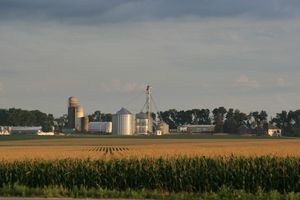7 Principles that Define U.S. Federal Crop Insurance
 Crop insurance is the cornerstone of the farm safety net. After the farm crisis of the 1980s, a report prepared for the House Agriculture Committee outlined several principles for an effective farm safety net. Now, modern crop insurance continues to combine the efficiencies of a private-sector delivery system with the regulatory oversight and financial support of the government. The crop insurance industry and Congress have worked together to strengthen crop insurance.
Crop insurance is the cornerstone of the farm safety net. After the farm crisis of the 1980s, a report prepared for the House Agriculture Committee outlined several principles for an effective farm safety net. Now, modern crop insurance continues to combine the efficiencies of a private-sector delivery system with the regulatory oversight and financial support of the government. The crop insurance industry and Congress have worked together to strengthen crop insurance.
Did you know there are seven principles make up the strong U.S. federal crop insurance program? They include: timely financial assistance after crop loss from weather events, consistently available to farmers for long-range planning, assistance based on individual farmers’ loss rather than overall disaster event severity, requires farmers to invest in their own protection, does not create incentives that encourage practices that increase the likelihood and extent of losses, offers predictable and actuarily sound products and maintains high levels of program integrity while improving the economic stability of agriculture. By the principles of an effective farm safety net, crop insurance has given our farmers stability and created a trust of crop insurance to help them manage their risk management needs.
Read more on the benefits of crop insurance here.
Not sure where to start? View available products in your state here and do not hesitate to reach out to your local crop insurance agent or a ProAg representative to find the coverage option that’s right for your operation.
